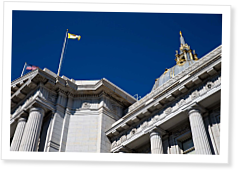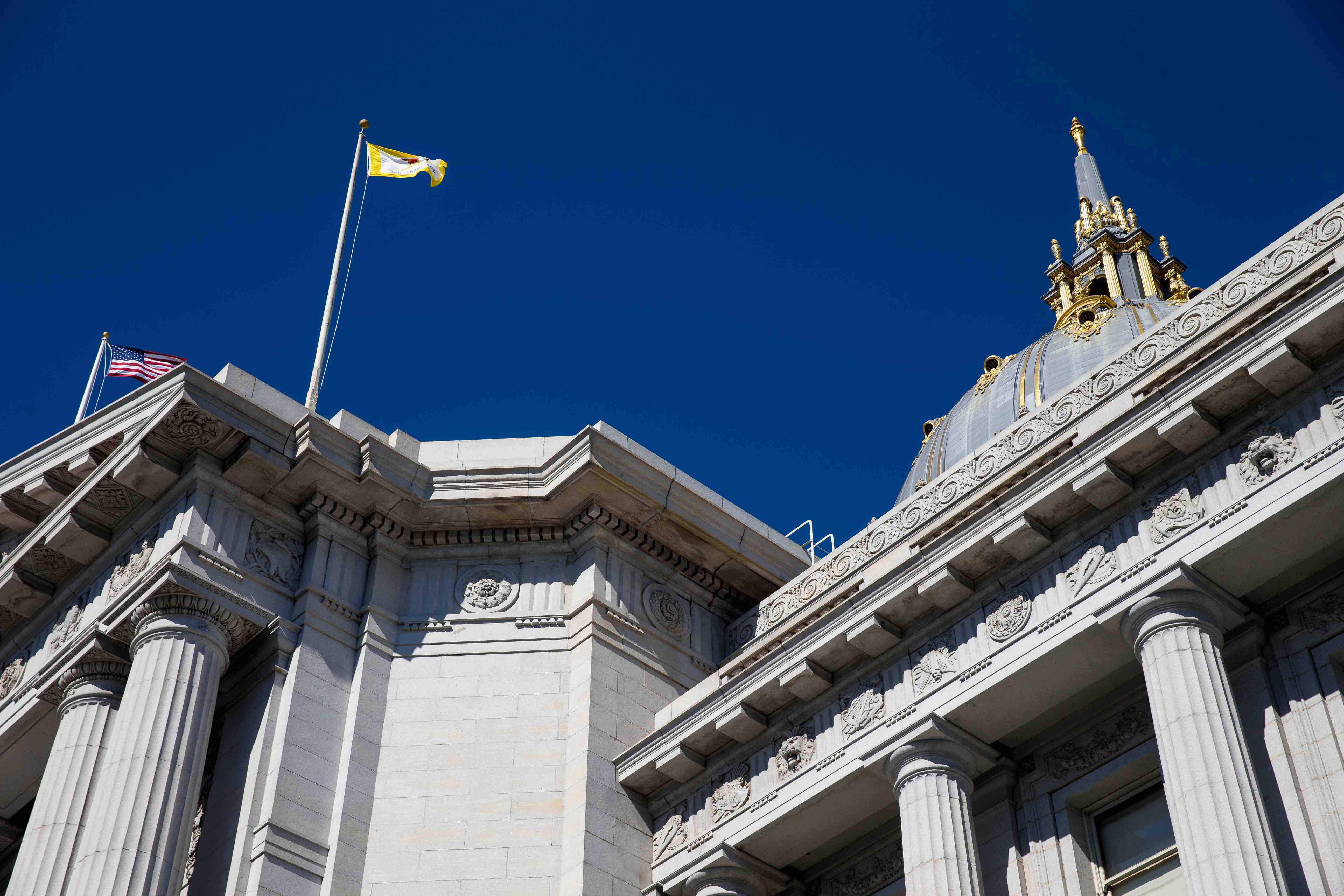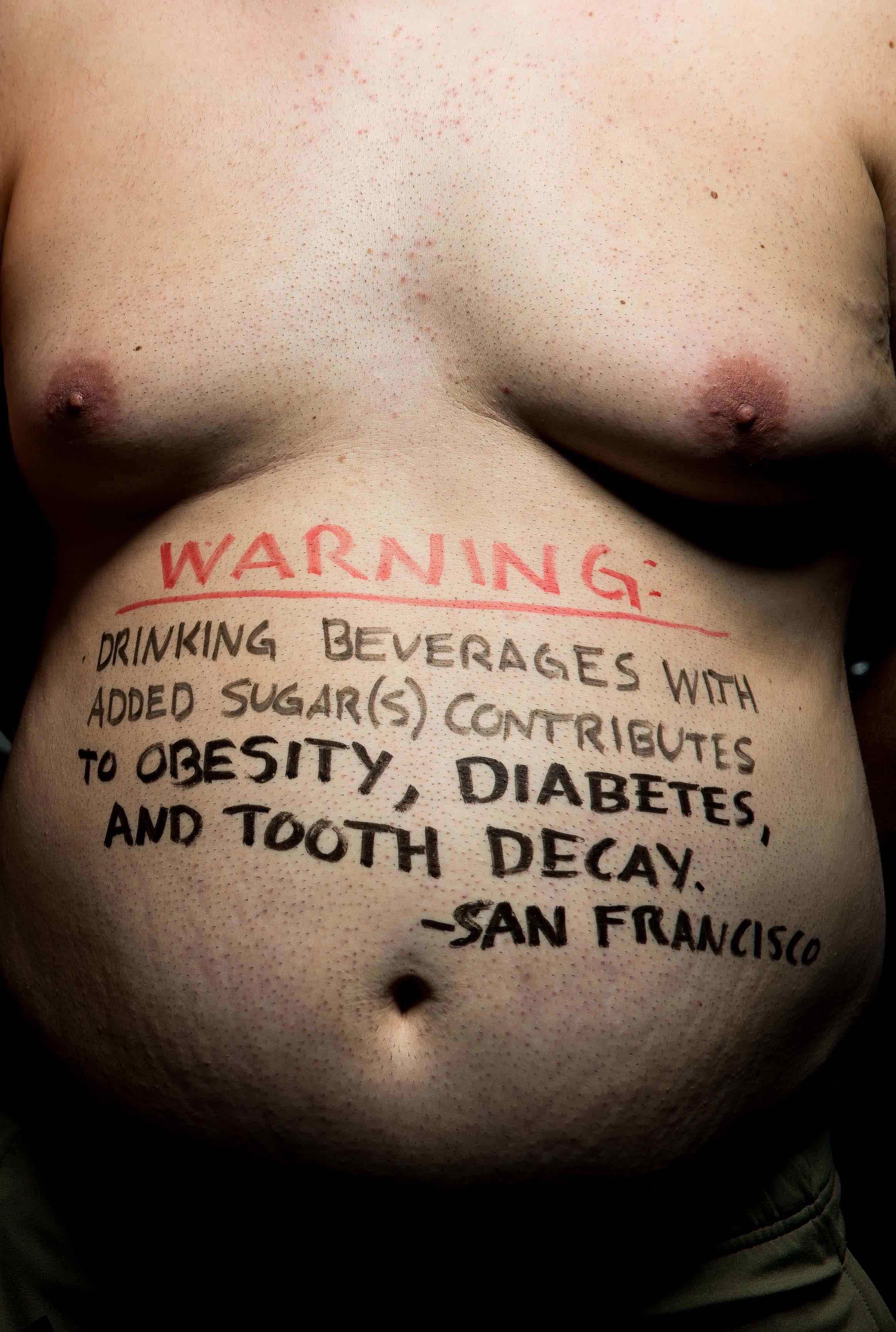
California federal judge denies beverage-association motion to stop San Francisco from requiring warnings on sugary-drink ads.
Should the American Beverage Association appeal a recent federal judge’s order denying its preliminary-injunction motion against a San Francisco ordinance, it will have “an uphill battle,” said an attorney with the Public Health Law Center.
“The order was very detailed and the court laid out its reasoning, so it created a solid foundation for (the city),” explained Julie Ralston Aoki, a staff attorney with the Minnesota-based center at the Mitchell Hamline School of Law. Before joining the center, Aoki served as a Minnesota assistant attorney general for nine years.
The center was among more than 20 organizations that filed an unsolicited brief in support of San Francisco’s ordinance requiring health-warning language on outdoor ads for sugar-sweetened beverages (SSBs). The ordinance is the first of its kind in the country.
Aoki added: “A motion like this is a really good way to test the strength of their case.”
On May 17, U.S. District Judge Edward M. Chen denied the American Beverage Association (ABA) motion to stop San Francisco from enforcing the measure, saying the plaintiff’s arguments that the city’s ordinance violates the U.S. Constitution’s First Amendment “are not likely to succeed.”
“And it is unlikely that they would suffer irreparable harm if the ordinance were to go into effect,” Chen wrote in his decision. “Even if Plaintiffs had established serious questions going to the merits, balancing of hardships does not tip sharply in their favor.”

The ABA—the trade group that represents the country’s nonalcoholic beverage industry, including the likes of The Coca-Cola Co. and PepsiCo Inc.—filed suit against the City and County of San Francisco on July 24 in the U.S. District Court, Northern District of California. They claim the ordinance violates the First Amendment, which guarantees multiple freedoms, including speech. Joining the suit are the California Retailers Association and the California State Outdoor Advertising Association.
“This is big. This is enormous. I mean it’s not just a denial of the preliminary-injunction (motion). It’s a judge in federal district court saying that the beverage industry’s arguments against warning labels do not stand up in court,” said Harold Goldstein, executive director of the California Center for Public Health Advocacy.
He added: “That’s the first time in the country that a court has weighed in on that issue.”
The ordinance, which will go into effect July 25, requires at least 20 percent of a sugary-drink ad to display the following language: “WARNING: Drinking beverages with added sugar(s) contributes to obesity, diabetes, and tooth decay. This is a message from the City and County of San Francisco.”
It is likely the city’s mandated warning is factual and accurate, Chen wrote.
“The City had a reasonable basis for identifying SSBs as a cause. The City has a legitimate interest in public health and safety, and the warning that SSBs contribute to obesity and diabetes is reasonably related to the City’s interest in public health and safety, particularly in light of the evidence indicating that SSBs are a significant source of calories as well as a significant source of added sugar.”
San Francisco City Attorney Dennis Herrera praised Chen’s decision.
"I'm gratified by a very strong ruling, which eviscerated plaintiffs' arguments that common sense warnings about the health risks associated with sugar-sweetened beverages—like obesity, diabetes and tooth decay—are somehow misleading. The truth is these sugary products cause many health problems," he said via an email from press secretary Matt Dorsey.
The health warning will provide information consumers need to make informed decisions, said San Francisco Supervisor Scott Wiener, author of the warning language.
“Consumption of sodas and other sugary beverages are making people in our community sick, particularly in our low-income communities, and education is a critical part of improving our society's health,” he said via email.

Although Chen’s decision does not signal an end to the suit, Aoki called his order “a very positive development.”
“It’s really gratifying—the thoughtful analysis that the court applied to the First Amendment arguments—and it’s also a really important milestone for this movement around warning labels for sugary beverages and other foods, nutrients that might be of concern,” she said.
Still, the case is “high impact,” Aoki noted. She said she wouldn’t be surprised if the ABA continued to pursue the case even if it lost an appeal.
“It could end up in the Supreme Court.”
Herrera expressed unconcern about an ABA appeal.
"I think a strong and thorough ruling like this bodes well for the City's position on appeal," he said.
In a statement sent to multiple news organizations, ABA leadership said it was disappointed in the court’s ruling.
"We believe that the city of San Francisco's mandate violates the constitutional rights of a select group by unfairly discriminating against one particular category of products, based on one ingredient found in many other products. We are reviewing the decision and look forward to making our case on the merits of this ordinance in court."
The ABA has 30 days from the order’s issue to file an appeal.
Goldstein welcomed such a filing.
“The longer the beverage industry fights this, the more attention is going to be brought to the facts of the case, which is that these beverages lead to obesity, diabetes, tooth decay. The more they fight it, the more the public will learn about the harms of its products. So they can keep fightin’ it, for all I care.”
About the Author: Andréa Maria Cecil is assistant managing editor and head writer of the CrossFit Journal.
All photos: Dave Re/CrossFit Journal
No comments:
Post a Comment